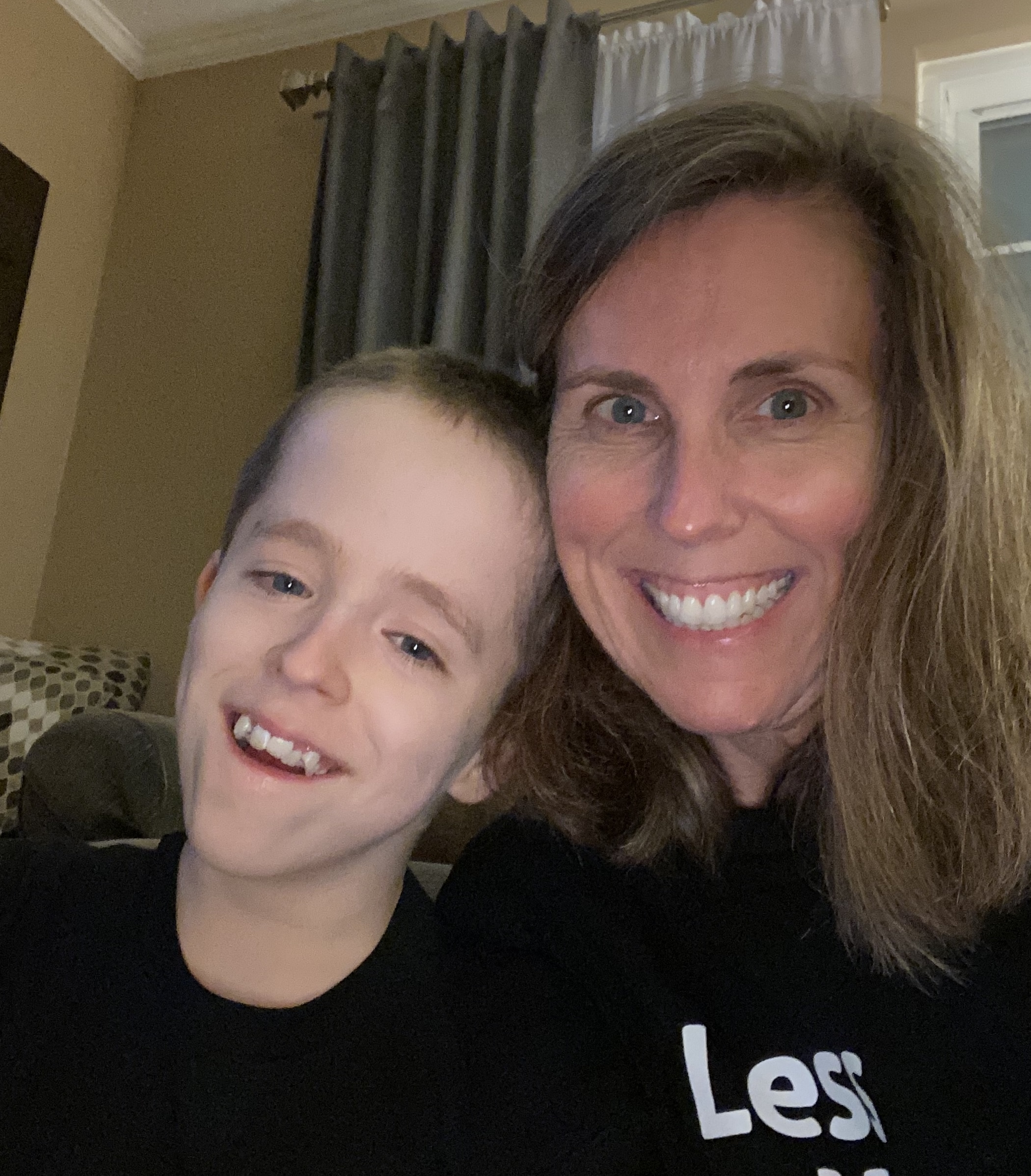2020. A year defined by one thing: COVID-19. It has changed and redefined any “normal” that we had, even if our “normal” was far from normal in the first place. Take for example: me. I am a stage IV, early age onset, colorectal cancer survivor, which I’m pretty darn proud of. I had a less than 10% chance of surviving five years, and I just hit that mark this year. What made these last five years (and in fact the last 15 years) so difficult, is my full-time job that I never missed a day of while fighting for my life. I am a caregiver.
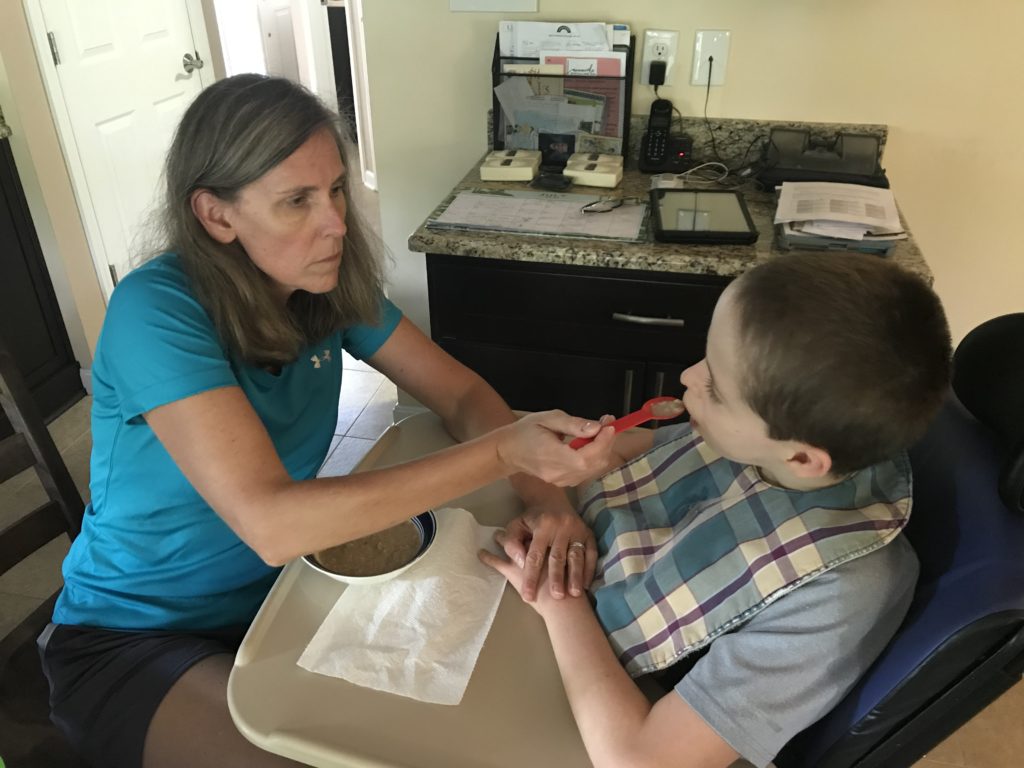
My (our, which includes my loving husband of 21 years, Drew) son, Emmett, has a rare chromosome disorder. It is a duplication of material on his 1 chromosome, q arm. Common chromosome disorders are syndromes. However, Emmett’s chromosome disorder is so rare (one of three known cases in the world), it doesn’t have a name. Emmett’s condition manifests itself in several profound mental and physical delays that result in his lack of ability to care for himself in any capacity. The easiest way to describe it is that Emmett is a 15 year old, 90 lb, 6 month old baby. He doesn’t walk, talk, sign, or point, so figuring out if he is in pain or what he wants, is determined through a process of elimination based on his routine or through a series of cries. He is incontinent, so we change his diaper several times a day. We lift him to his feet where we try our best for him to bear weight and move his legs to ambulate either to the toilet (to try and “potty train” him) or to his feeding chair to feed him soft and pureed foods by mouth. The great news in all of this is that Emmett doesn’t have seizures, doesn’t have a feeding or a breathing tube, and is actually pretty physically healthy. He was hospitalized for aspiration pneumonia a few times as a baby which deems him at risk for the rest of his life. Therefore, Emmett requires skilled nursing at school and in the home to monitor his secretions and keep his lungs clear. The other great news is that while Emmett is also autistic, he makes beautiful, meaningful connections with those who love him, which include his older brother, Griffin (17) and his part-time nurse, Sue, who has been like family to us for 13 years.
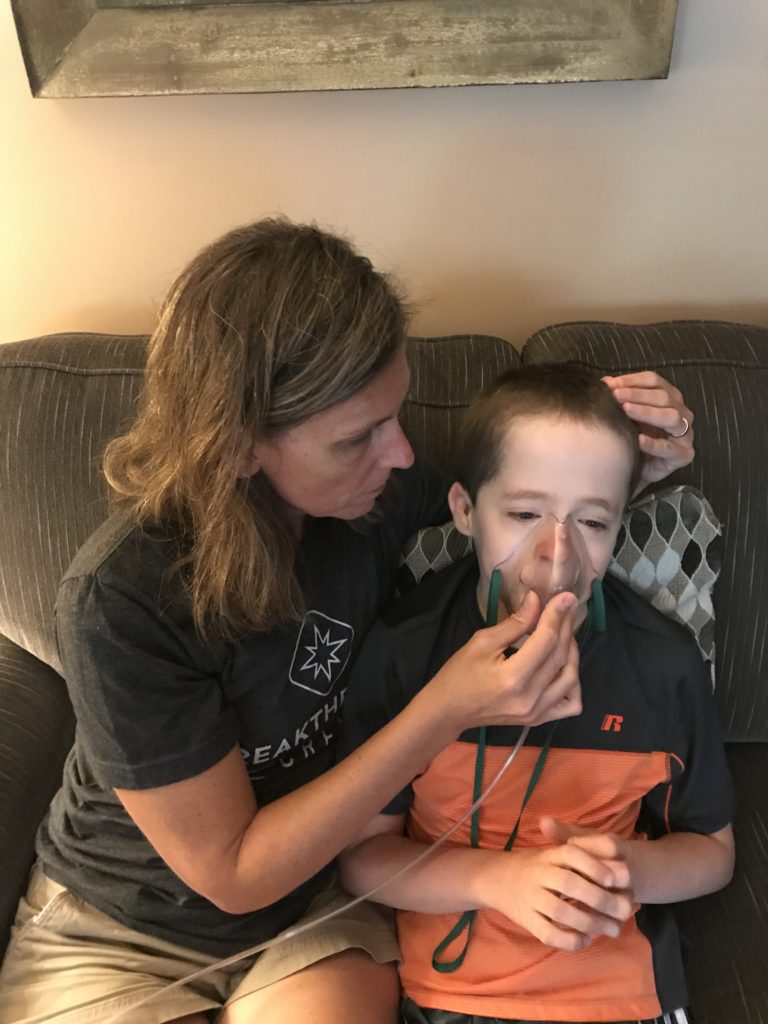
It is rough. Emmett requires round the clock, completely supervised care. At the beginning of the COVID shutdown, while friends of mine were cleaning out their closets and garages, reading books, and binge watching Netflix, I was lifting, diapering, medicating, feeding, lifting, diapering, medicating, and feeding Emmett. We called off Sue, since both Emmett and I are immunocompromised, and my husband, who works in finance, was working 12 hour days. I was doing it all. If you have a typical child, you know how you can just let them watch TV or play on their devices while you do something else? I can’t do that. There is no “amuse yourself.” Therefore, there is no “free time” for my husband or me. We are on duty 24/7.
Months later, the virus rages on. We desperately need help but because of the nursing shortage and the nuances of Emmett’s case (we need someone physically fit and strong), it is difficult to find our unicorn. The worst is when an agency nurse calls and says nonchalantly, “I could probably pick up a shift.” My son is not a shift. He is the sweetest, most precious child who wants to develop to his fullest potential, like every other 15 year old boy. We are looking for a long-term relationship with someone who can become part of our family. Someone who can travel with us and give us a break. Someone who is a loving extension of ourselves.
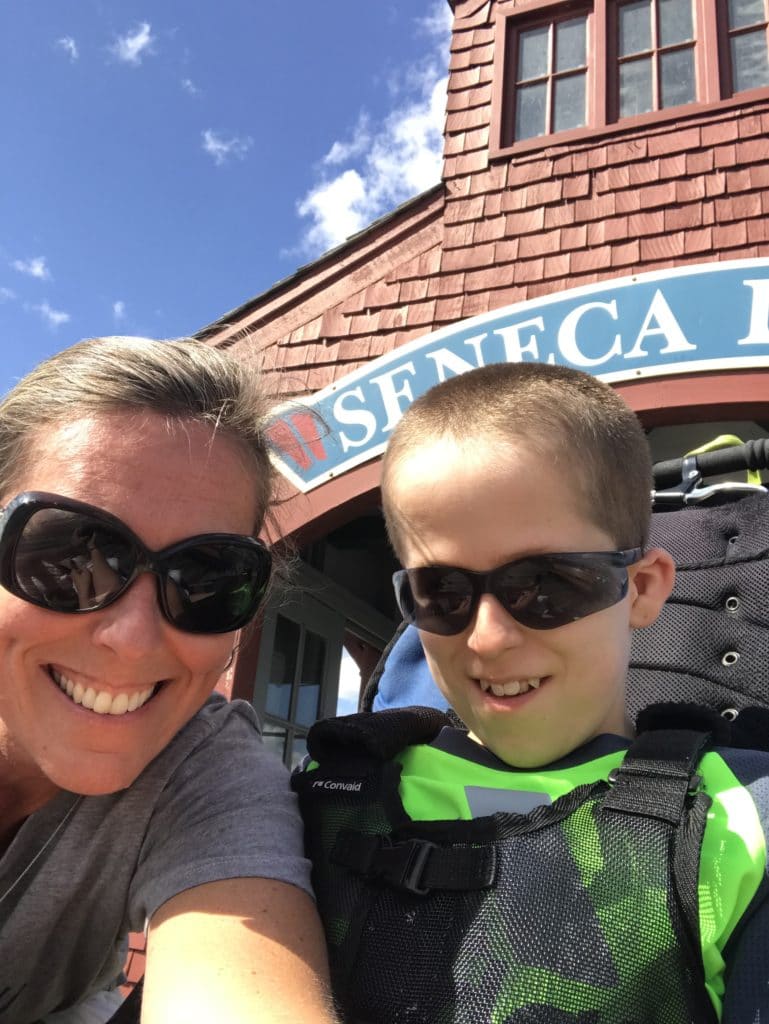
On a broader scale, home health care needs more support. We get a lot of inquiries from retired nurses, who view home health care as ramping down their career. Obviously, that’s not going to be a fit for Emmett. How can we let the world know that home health is a viable option for a nurse after 2-3 years of clinical, inpatient experience? And home health care is only going to expand. One silver lining from COVID is that we saw innovations in technology shift healthcare, work, and learning to the home where people feel safe, comfortable, and most accommodated. As a patient advocate for those with disabilities like Emmett and me, I see no reason why we would reverse that trend now when we know what’s possible.
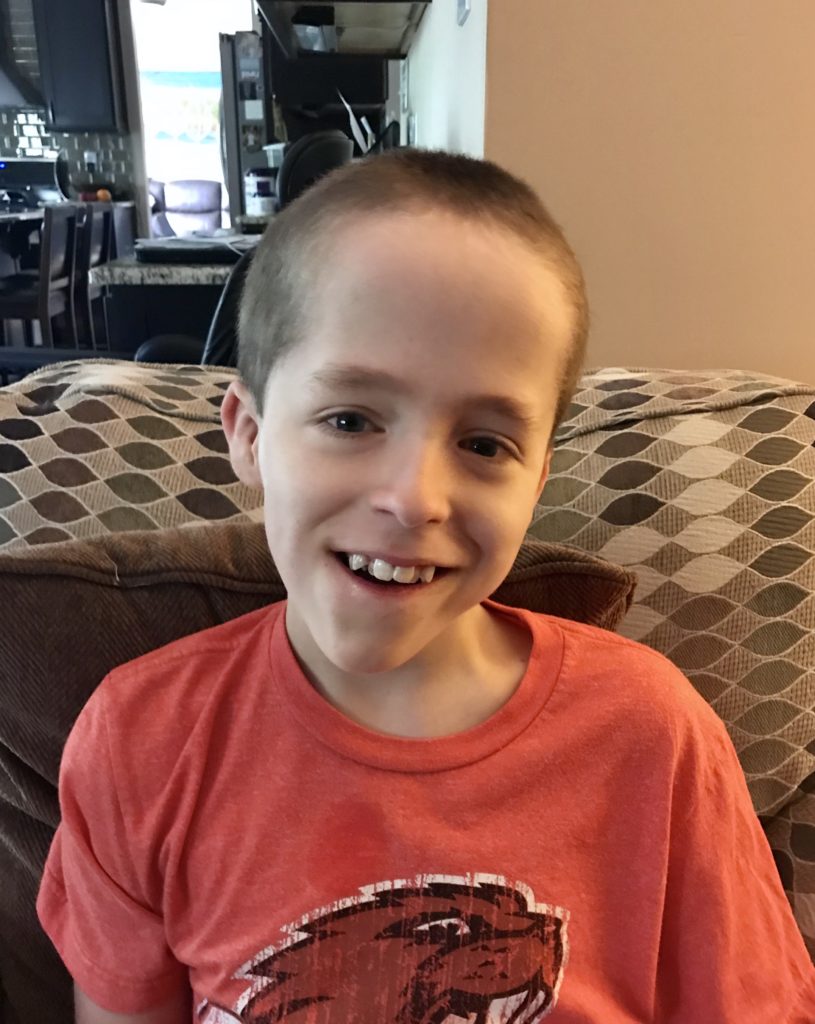
This is a difficult time for us all, so let’s remember to be kind to one another. We will all get through this and on a more personal level, our family will get through this. Eventually, we will find that special person to step in and feel the power of Emmett’s big blue eyes letting them know the difference they are making in his life. Until then, we will put one foot in front of the other and wait for the day when Covid-19 becomes nothing more than a memory.
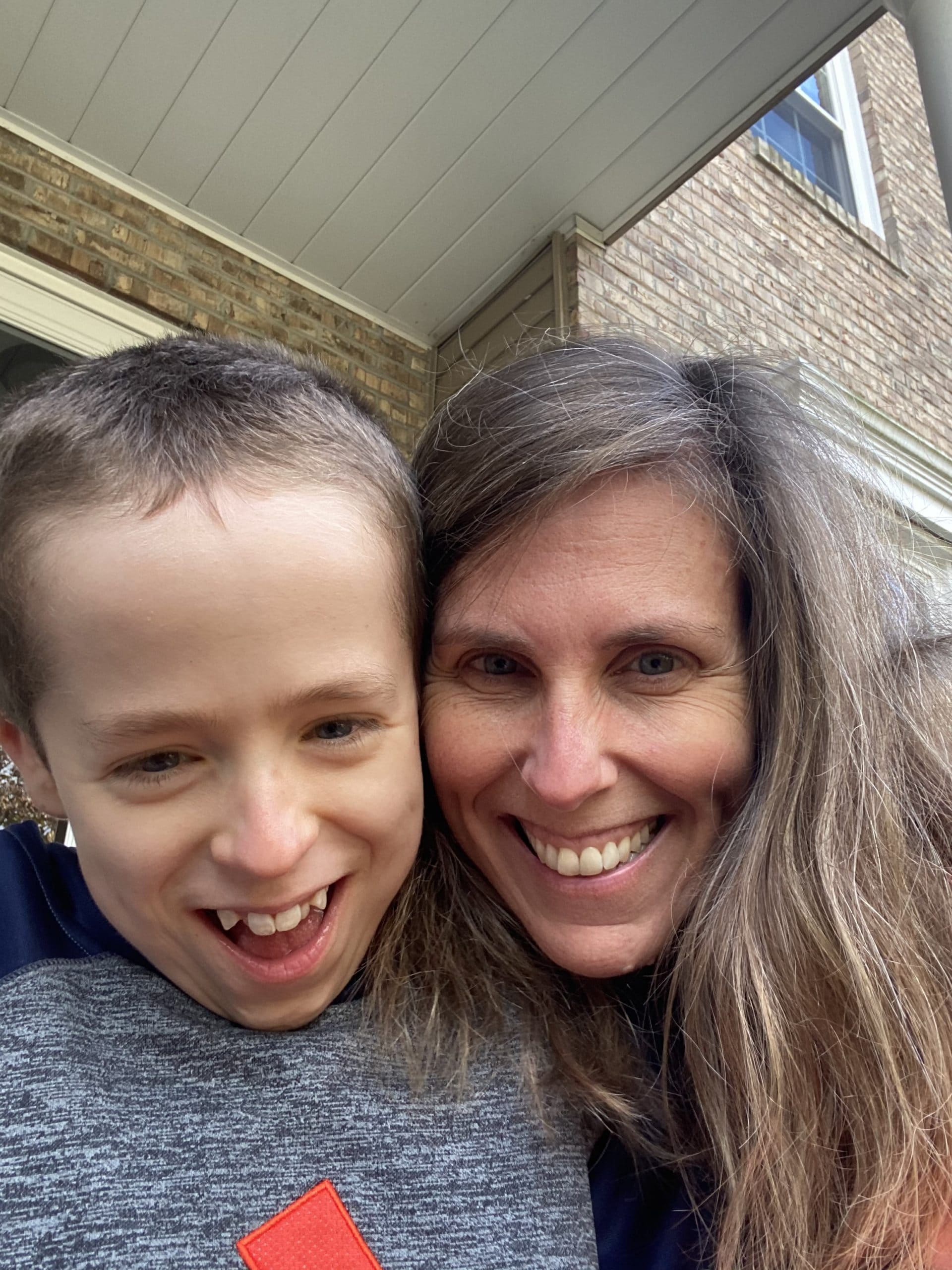
Stacy Hurt, M.H.A., M.B.A.
Patient Advocate, Special Needs Mom, Public Speaker
The Hurt family is still searching for that special someone in the Pittsburgh area. Interested applicants can email [email protected].
Learn more about National Caregivers Month.

